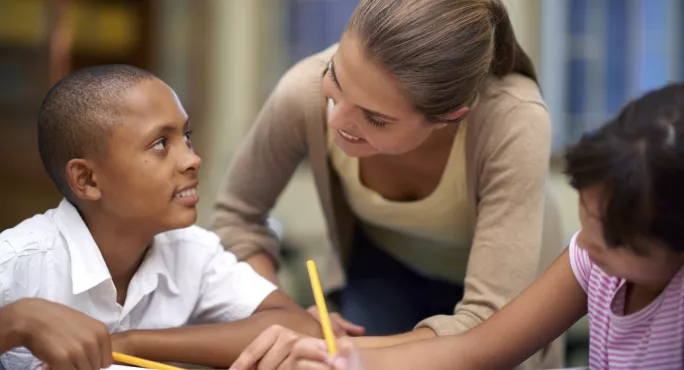Chancellor Rishi Sunak has recognised the vital contribution teachers made during the country’s response to Covid-19 by announcing the largest sustained uplift in teacher salaries since 2005.
Whether they have been supporting the most vulnerable children in schools, caring for the children of key workers on the front line or leading the remote teaching and learning of the nation’s children and young people, teachers have worked tirelessly, under exceptionally challenging circumstances.
Most teachers would generally agree that we did not enter the profession with the expectation of lucrative salaries. After all, the proposed public-sector pay rise follows years of pay cuts in real terms.
So perhaps, as teachers across the country prepare for challenging times ahead in September, it would be worth reflecting on some of the non-financial motivations for entering the teaching profession. In other words: what is our why?
Teaching is the job that creates all other professions
Many teachers feel that teaching is a vocation: we feel called to give children and young people the very best start in life.
We have chosen to be a part of one of the most important jobs there is: the profession that creates all of the other professions. It is teachers who have who taught our doctors, nurses, receptionists and engineers. Our hospitality staff, retail staff and entertainers have all learned from teachers like you.
The multifarious role of a teacher
The role of a teacher is incredibly diverse. We are the child’s parent figure during the day, providing stability, consistency, routines and love. We are the child’s support, helping them to build happy memories as they grow and learn. We are the child’s coach, encouraging them and cheering them on when times are tough. We are the child’s mentor, offering guidance, advice and support when it is needed.
The transformational power of education
As teachers, we truly believe in the transformational power of education. We are in the privileged position where we can equip our learners with the knowledge, understanding and skills they need to survive and thrive as global citizens.
Teachers shape the hearts and minds of children for the rest of their lives, helping them to realise their aspirations.
Positive role models
As teachers, we are role models, inspiring and encouraging children and young people to strive for excellence, so that they can become the best versions of themselves. We encourage learners to take risks and to learn from their mistakes, so that they can achieve the high expectations we have for them.
Relationships, with pupils and other staff
Teachers are committed to building positive relationships with children and parents or carers, so that we can collaborate and work together more effectively as we share knowledge and facilitate learning.
We also work with a strong team of staff: caretakers, admin staff, teaching assistants, cooks, lunchtime supervisors, cleaners, finance team, librarians and all those who ensure that we can do our jobs to the best of our ability.
Teaching is a wonderful profession, with limitless opportunities, but it does not come without its challenges. This year, teachers have demonstrated resilience, resourcefulness and readiness as they have educated the nation’s children and young people in creative ways during a pandemic.
As schools prepare for a full reopening in September, many teachers are understandably anxious about the challenges and uncertainties ahead.
As many teachers prepare for the new term by redecorating their classrooms, finding new resources and enhancing their own subject knowledge, the news of a few additional pounds showing on our payslips will obviously be welcome. But we know that the true rewards of being a teacher are priceless.
Sarah Mullin is a deputy headteacher and doctor of education student. Her book, What They Didn’t Teach Me on My PGCE, is a bestseller on Amazon




